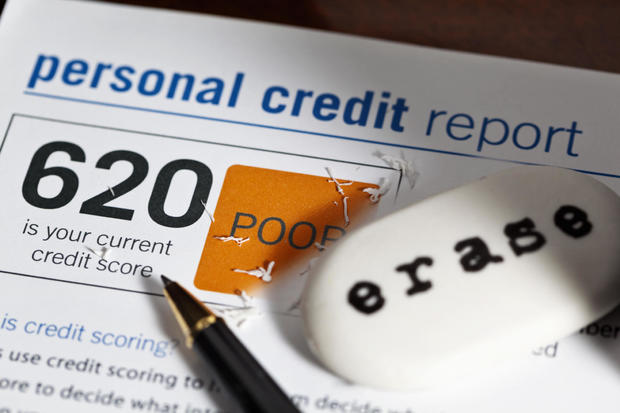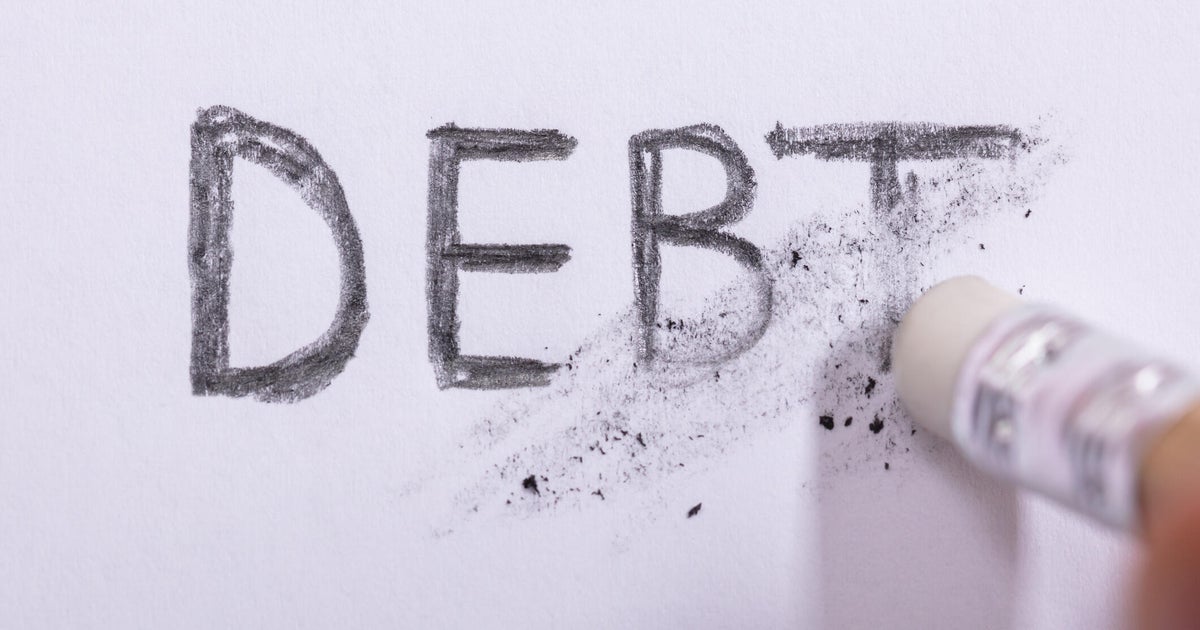7 simple ways to get a loan after credit card debt settlement
Carrying credit card debt from month to month can be quite harmful to your finances — especially in today's economic landscape. For starters, persistent inflation issues have led to higher costs on necessities like rent, food and other necessities, making it tough for many people to fit their monthly credit card payments into their budgets. And, today's high-rate environment has led interest rates on credit cards to close in on 22%, so any card debt you carry is a lot more expensive right now.
That's a large part of why some cardholders have turned to credit card debt relief strategies, like credit card debt settlement — also known as credit card debt forgiveness — to get some relief. But while credit card debt settlement can result in paying a fraction of the balance you owe on your credit cards, it also typically comes at the cost of damage to your credit score. And this can make it challenging to secure loans when you need them.
So what can you do if you've settled your credit card debt (or are in the process of doing so) and you need to borrow money? Well, it may not always be easy (or cheap) to secure a loan after credit card debt settlement, but there are several ways to improve your chances of getting approved.
Struggling to pay what you owe? Find out what your credit card debt relief options are now.
7 simple ways to get a loan after credit card debt settlement
There are a few easy ways you can try and secure a loan after you've settled your credit card debt. These include:
Consider a secured loan
Secured loans, which are a type of loan that requires you to put up collateral in return for borrowing, may be easier to obtain after you've completed the credit card debt settlement process. By requiring collateral, it reduces the lender's risk, making them more likely to approve your application despite your past credit issues. And, there are numerous options when it comes to borrowing money with secured loans.
For example, some lenders will offer secured personal loans, but auto loans (which use the vehicle as collateral) and home equity loans or home equity lines of credit (which use your home as collateral) are also types of secured loans. So, you may have quite a few options to choose from, depending on what you need to borrow the money for — and what you are willing to put up as collateral to do it.
Explore your debt relief options and find the right debt relief company for you here.
Explore credit-builder loans
Credit-builder loans are another option you may have when it comes to borrowing money after debt settlement. These loans work differently from traditional loans and are specifically designed for those who are looking to build or rebuild their credit, which makes them an excellent option for those who are still recovering from the credit damage caused by debt settlement.
When you utilize a credit-builder loan, you won't receive the funds upfront immediately. Rather, you make monthly payments to the lender, which holds the amount you're borrowing in a savings account while you make those payments. Once you've paid for the amount you want to borrow in full, you receive the funds. So, this option functions more like a savings plan than a borrowing option.
But, there are unique benefits to this loan type. And, a major one is that your monthly payments are reported to credit bureaus, helping to build your credit history. This demonstrates your ability to make consistent payments and can improve your credit score, making it easier to get traditional loans in the future.
Look into peer-to-peer lending
Peer-to-peer lending platforms connect borrowers directly with individual lenders who use their own criteria to determine whether it makes sense to lend money to you. These platforms may be more flexible in their lending criteria and could be an option for those with less-than-perfect credit.
That said, you'll likely be paying a pretty hefty amount of interest in return, so be aware of that possibility before you borrow money on this type of platform. And, be sure you fully understand the loan terms, and any potential fees, before taking this route.
Find a co-signer
If you have a trusted friend or family member with good credit, they may be willing to co-sign a loan with you. This can significantly increase your chances of approval and potentially secure better loan terms.
However, be aware that this puts the co-signer at financial risk if you default on the loan. After all, the co-signer is agreeing to take responsibility for the repayment of the loan if you default, so you need to be sure you can make the payments, and your co-signer should be well aware of what they're agreeing to before you borrow.
Consider online lenders
Online lenders may be another option worth considering if you need to take out a loan after settling your credit card debt. One of the big benefits of borrowing money through online lenders is that many specialize in loans for people with less-than-perfect credit.
The downside is that the interest rates on these loans are typically higher than what you'd get from a traditional lender, so you may end up paying a lot more in interest than you otherwise would have. But these lenders also typically have more lenient approval criteria, so it may be easier to borrow from them while still recovering from the effects of debt settlement.
Build a relationship with a local bank or credit union
Establishing a relationship with a local bank or credit union can be beneficial when it comes to borrowing money after going through the process of credit card forgiveness. After all, smaller local banks and credit unions are often more willing to work with members who have credit challenges, and they may offer more flexible terms and lower interest rates compared to traditional banks.
While establishing a good relationship with the right financial institution won't be a quick fix for borrowing, it can be one of the better options over time. You can start by opening a checking and savings account and maintaining them responsibly. And, after you've showcased your ability to manage your money, the bank or credit union may be more willing to extend credit to you simply based on your banking history.
Consider a smaller loan amount or a microloan
You may also want to consider starting with a smaller loan amount, which can increase your chances of approval. There's less risk in allowing someone with a checkered credit history to borrow a smaller amount of money, making it easier to get approved. Plus, successfully repaying a smaller loan can also help rebuild your credit and potentially qualify you for larger loans in the future.
Another option you may have is microloans. These types of loans are typically for small amounts of money and short loan terms — and the rates tied to them can be a lot higher than the average personal loan. However, they often have more flexible requirements and can help you establish a positive payment history if other lenders won't approve you to borrow.
The bottom line
It can be tough to get approved to borrow money after you've settled your credit card debt, especially immediately after you've completed the process. But by understanding your options and exploring alternative lending solutions, you can increase your chances of securing a loan as you work to rebuild your credit. If you choose to take this route, though, just remember to borrow responsibly and only take on debt you can comfortably repay to avoid future financial difficulties. Otherwise, you may find yourself in a similar situation over time, making it even more difficult to get things back on track.




